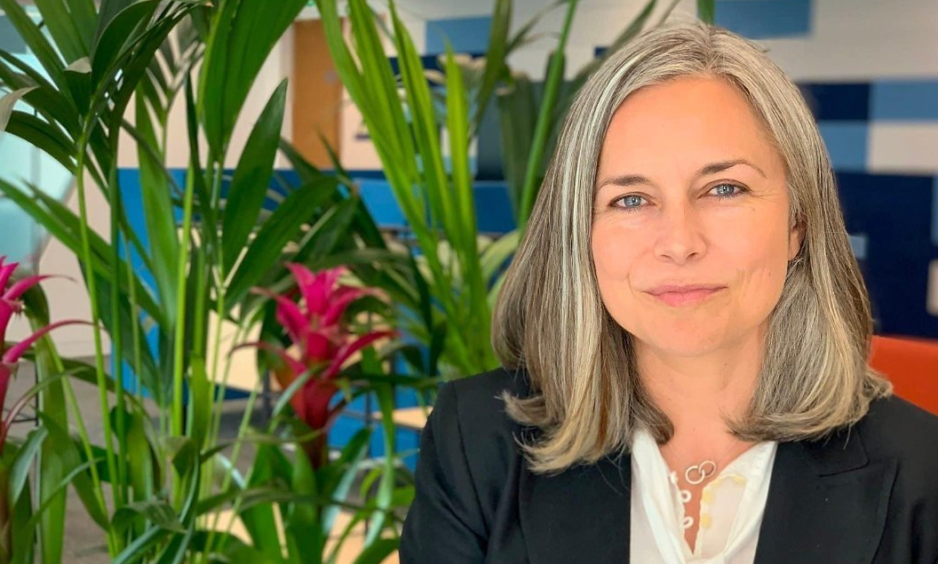
Kathleen, an executive speechwriter at Shell, shares her experience of coming out a second time when she started a new career.
I must confess that when I was asked to write this blog, I panicked.
June 26 was LGBT and Inclusion Day, and I was asked to write about being an openly gay employee.
Except I am not. Not really. I am shy about my sexuality and reticent about even using the “L-word”. I make myself do it – but still have to take a deep breath before I tell someone that actually… my partner is a woman. But it is important that I do. And it is even more important that I work in a place where a senior figure would encourage me to do so.
Why does it matter? Imagine a classic office conversation.
“…and your partner, what does he do?”
(Deep breath.)
“She has her own business.”
It is just one extra letter, but it makes a world of difference. Because if I do not correct the assumption, I am hiding a crucial part of my identity. Think how much of our lives we spend at work. Now think how much it shapes us. Workplace identity matters. How can a person perform at their best, if they are spending time, energy and emotion hiding themselves?
When it comes to sexuality, a recent survey found that 46% of LGBTQ (lesbian, gay, bisexual, transgender and questioning) people in the USA are in the closet at work.1 In the UK, where I am based, things are a little better. But even so, in England, Wales and Scotland, where gay marriage has been legal since 2014, 35% of LGBT employees say that they hide their sexuality for fear of discrimination.2
Before I came to Shell, I was at The Times of London for 16 years. I worked in the media, in London, in the 21st-century. Yet somehow, I could not tell my dear colleagues that I was gay.
Finally, it got too much. If I had it so easy, yet could still not come out, what on earth was it like for someone in a conservative country, where homophobic attacks are common – and homosexuality is an offence?
I had no excuse. So I came out in a series of anonymous columns (Closet Case) that ended with me identifying myself. If I had been tempted to chicken out, it was too late. On a personal level, the result was extraordinary.
Some people were negative, a couple were harsh, but most were surprisingly positive. Friends, colleagues, strangers reached out to me. We were engaging differently – authentically. And, best of all: I did not have to remember to hide myself.
But if I thought that coming out once was enough, I was wrong. I realised that, when I started a new career, in a new industry… with 82,000 potential new colleagues.
I have now been at Shell a year and a half – and I have avoided the “partner” topic a few too many times. When I joined Shell, I was introduced to the GTKY culture. It may sound a little off-putting, but it is very useful. It is short for “get to know you” – and is an acronym that means you can contact almost anyone in Shell and ask them half an hour of their time.
Those GTKYs helped me to make connections, learn about Shell and get a glimpse of how everything fits together. But after my 25th coffee with a new person, I began to dread the personal part.
Energy transition? Gearing? Turbines? How fascinating. My fiancée? Silence. I was wasting my opportunity to really GTKY anyone at all.
And that is what matters. Exchanging information, both professional and personal. Trusting each other, even briefly. Encouraging difference as much as we do similarity. The only awkward thing is that my “difference” involves talking about sex, to strangers, at work.
Since I joined, not one person has made me feel bad. The only bad feeling I had was fear. I may have panicked when I was asked to write this blog, but I knew I had to do it. As a writer at The Times, I had to write about it. Now, as a speechwriter at Shell, I have to talk about it. Not just so I can avoid awkward chats, but because I have the opportunity to speak out.
Coming out is different for everyone, and it might not be right for you. You may not work in an open country, your government may not be tolerant and your colleagues might be diffident, but you are part of an enormous, supportive network. You are not alone. Reach out. You might even “get to know” yourself a little better too.
This story first appreaed on Shell’s website. Click here to read the original story.
Recommended for you
